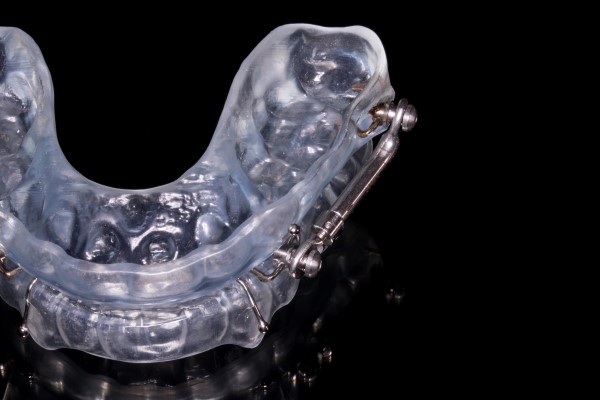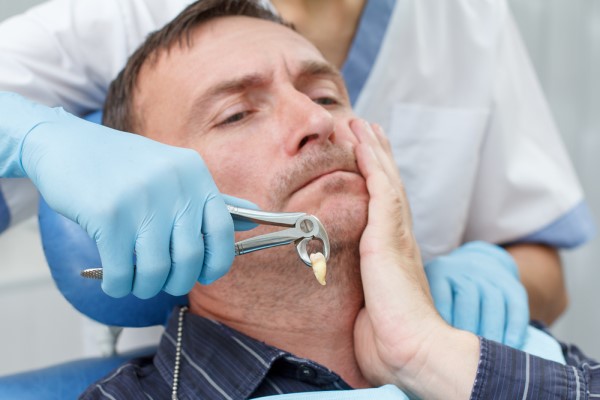Why TMJ Disorder Causes Discomfort and Tension

TMJ disorder affects millions of Americans each year. The good news is the condition can be treated through non-invasive measures when corrected before the discomfort and tension begin to worsen. This review discusses TMJ disorder and looks at the symptoms of discomfort and tension, focusing on why they occur and how they can be relieved.
TMJ disorder explained: What is it and what are the symptoms?
TMJ disorder is a common condition that is likely to get worse without proper treatment. The symptoms may vary for each patient, but most report feeling discomfort, tension, and limited movement of the lower jaw. The following is a more detailed look at TMJ disorder and the science behind the symptoms.
What is TMJ disorder?
The temporomandibular joint (TMJ) connects the lower jaw (mandible) to the skull. This joint is responsible for the opening and closing of the mouth. TMJ disorder occurs when the joint does not work properly and/or discomfort and tension associated with the TMJ start to develop.
Why does TMJ cause discomfort and tension?
The symptoms of TMJ disorder may look different for everyone who has it. However, two common symptoms are discomfort and tension. These develop largely due to the inflammation that occurs as a result of excess pressure being placed upon the joint. The TMJ can also become weakened and sore due to overexertion. The discomfort is usually at its worst while chewing or talking. The tension can last all day for some people, and it can be relieved with anti-inflammatory medication.
What are the causes of TMJ disorder?
It is important for the dentist to determine the cause of the patient's TMJ disorder to know how to best treat the discomfort and tension. One common cause of TMJ disorder is teeth grinding while sleeping, a condition known as “bruxism.” Other cases could be genetic or related to arthritis.
How can TMJ disorder be treated?
Certain mild and temporary cases of TMJ disorder can improve on their own. However, many people require treatment. Anti-inflammatory medications and muscle relaxants may work for some patients. TMJ disorder caused by bruxism can usually be treated by the patient wearing a mouthguard at night to keep their teeth from clenching together. Surgery is an option, but it is less common and reserved for severe cases.
How can I help prevent TMJ disorder?
TMJ disorder is usually avoidable by identifying the risks of the disorder and taking action. For example, a person who grinds their teeth at night can significantly reduce their risk of TMJ disorder by wearing a dentist-provided nightguard to protect the teeth and prevent the grinding, which places less pressure on the jaw joints and muscles.
Speak with a member of our TMJ treatment team today
Here at our dental practice, we help our patients who are dealing with symptoms of TMJ disorder find long-term relief. If you are experiencing discomfort, tension, or other concerning symptoms related to the jaw, call our team today to schedule a visit.
Request an appointment here: https://www.mytotaldentistry.com or call McCarthy Dentistry at (740) 546-5178 for an appointment in our Marietta office.
Check out what others are saying about our dental services on Yelp: TMJ Dentist in Marietta, OH.
Recent Posts
A TMJ dentist is a dental professional that focuses on treating conditions that negatively affect the structures of the temporomandibular joint. Continue reading to find out more about TMJ disorder and what the dentist does.Outlined below are five questions to ask a TMJ dentist. In addition to these common questions, the answers are also provided,…
The temporomandibular joints are located on each side of the head and assist with chewing, swallowing, and speaking. TMJ pain occurs when this intricate system of muscles, bones, ligaments, and discs fails to work as efficiently as it normally would. Ailments of the TMJ region can be caused by a variety of things, including injury,…
Are you experiencing TMJ pain? Temporomandibular joints (TMJ) are located on either side of your face, just below your ears. They connect your lower jawbone to your skull and are used every time that you talk and chew. When these joints are overworked or injured, the joints and surrounding muscles can become inflamed and cause pain.…
Patients who experience clicking or popping in the temporomandibular joint may have developed the combined jaw joint and facial muscle dysfunction referred to as TMJ disorder. Patients who are female, deal with stress or anxiety, or have other health conditions that affect the muscles and joints may warrant an evaluation. Because TMJ can be a…


